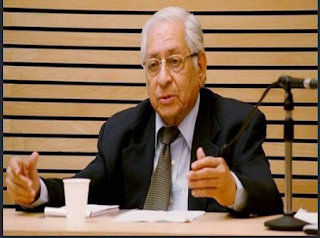A disciplined lawyer, renowned jurist, a man of his words,
champion of human rights, former attorney General of India Mr. Soli Jehangir
Sorabjee was passed away on April 30th, 2021, after contracting the
coronavirus disease (Covid-19). In this post, we have tried to sum up his
beautiful journey of life
- Born on March 09, 1930,
to a Parsi family in Mumbai, Soli, as affectionately called by his
colleagues, was known as a champion of freedom of speech and expression.
- He had completed his
schooling from St. Xavier’s College, Mumbai and earned his LLB degree from
the Government Law College Mumbai in 1952.
- In 1953, he entered into
the bar, and started his practice from Bombay High Court. In the year
1971, he was designated senior counsel by the Supreme Court of India.
- He had started his
practice under the great legendary figure Mr. Jamshedji Kanga. By taking the
legacy forward, he trained several finest legal minds, one of them are Mr.
Harish Salve.
- During the emergency in
1975, he emerged as one of the vocal critics on curbs on free speech and
press. He had also stood strong for the sufferers of the anti-Sikh riots
of 1984.
- He had served in several
offices in organisations of national and international repute. some of them are:
I.
He worked in the office of
Solicitor General of India from 1977 to 1980 and later, He had also served as
the chief legal advisor of the central government, in the capacity of Attorney
General of India in 1989 for a year and again for six years from 1998.
II.
He was appointed by the UN as
a Special Rapporteur for Nigeria, in 1997, to report on the human rights
situation in that country.
III.
He became a member and later
Chairman of the UN-Sub Commission on the Promotion and Protection of Human
Rights, from 1998 to 2004.
IV.
He had been serving as the member of
the United Nations Sub commission on Prevention of Discrimination and
Protection of Minorities since 1998.
V.
He also served as member of
the Permanent Court of Arbitration at The Hague from 2000 to 2006.
VI.
In March 2006 he was
appointed an Honorary Member of the Order of Australia (AM), "for service
to Australia-India bilateral legal relations".
VII.
He was also a Patron of the
Media Legal Defence Initiative, a UK-based charity that provides legal aid and
assistance to journalists and news media organizations around the world,
supports training in media law and promotes the exchange of information,
litigation tools and strategies for lawyers working on media freedom cases.
- He had won numerous
awards, which includes but not limited to the following:
I.
Kinloch Forbes Gold Medal in
Roman Law and Jurisprudence, 1952, during his law school days,
II.
Padma Vibhushan, March 2002,
(For his unconditional support to the freedom of speech and the protection of
human rights), and
III.
Justice K. S. Hegde
Foundation Award, April 2006.
Join us on Telegram: CLICK HERE
- He was very fond of
literature. He had authored some books, including:
I.
The Laws of Press Censorship
in India (1976),
II.
The Emergency, Censorship and
the Press in India, 1975-77 (1977),
III.
Law and Justice (2004)
Also Read: 48th
Chief Justice Of India, Mr. N.V. Ramana: 10 Things Which You Should Know About
Him
- During his long career in
the legal profession (almost over seven decades), Sorabjee appeared in many landmark
cases that shaped the constitutional history of India. Some of them are:
I.
The famous Kesavananda
Bharati case (1973) in which a 13-judge
Constitution Bench of the Supreme Court propounded the doctrine of basic
structure.
II.
S R Bommai case, 1994,
which, inter alia, led to the broad interpretation of the article 356 of
Constitution of India.
III.
The IR Coelho case
(2007), in which a nine-judge Constitution Bench ruled that laws placed in the
Ninth Schedule of the Constitution don't enjoy a blanket protection from
judicial review.
IV.
The BP Singhal case
(2010) wherein the Supreme Court held that governors could not be dismissed
without due cause.
- At the age of 91, he succumbed with the deadly COVID-19 virus
and left us on Friday, 30th April,
2021.






0 Comments